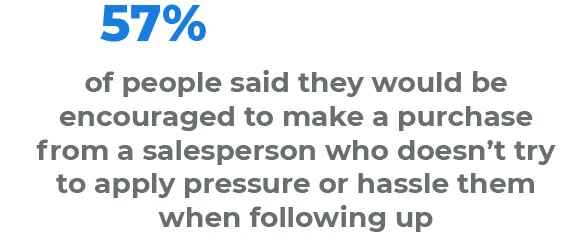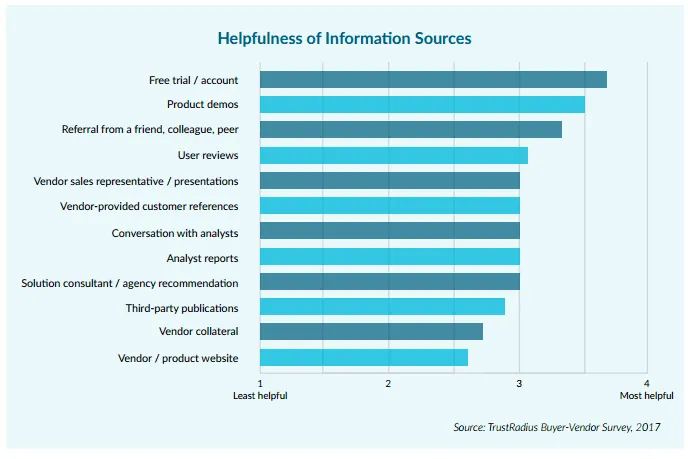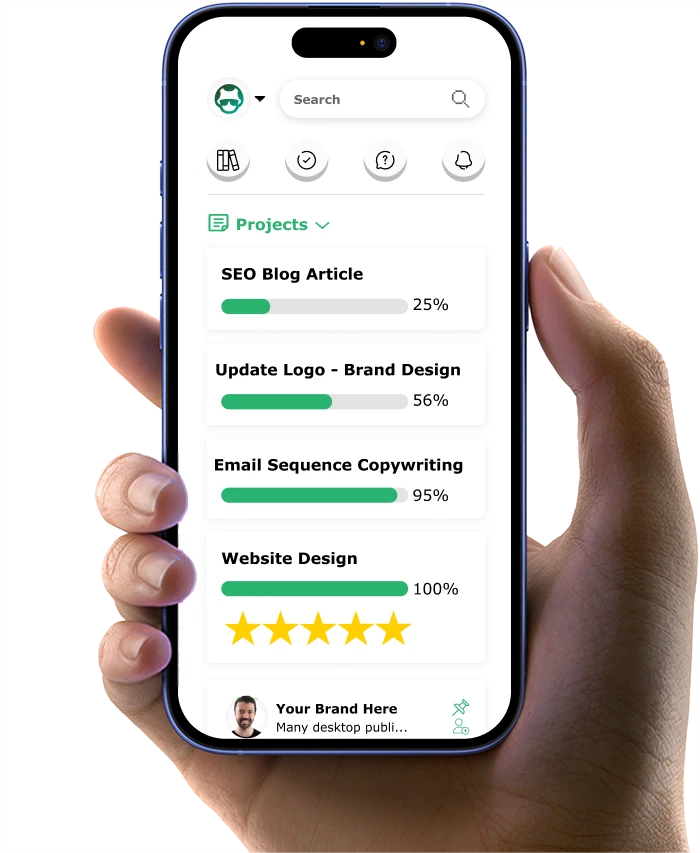How To Handle 11 Common B2B Sales Objections You Dread
Closing a deal is tough work.
From generating leads to coming up with a personalized script, there’s a lot of blood, sweat and tears that goes into the sales process.
And just when you think it’s all about to pay off, your prospect gets flaky.
You know, there’s always some sort of objection for not wanting to finalize the deal.
But with a good response, you can still come out with the sale in the end.
In this resource, you’ll hear about:
- How challenging the B2B sales process is and some of the top reasons why deals fall through.
- 11 common sales objections and how to handle them — that way, you gain the upper hand in negotiating.
- All the industry stats and data that drive best-in-class sales decision-making.
After reading today’s article, get used to channeling Micheal Scott and saying, “How the turntables”... (wait, that’s how it goes, right?) because you’ll be gaining all the leverage in your sales calls.
Let’s dive right in …
Want to delegate all your marketing and funnel work done—without the headaches of hiring? Download our free guide: 33 Marketing Projects You Can Delegate to Growbo and discover how to save 100+ hours a month, grow faster, and scale without the overhead.
Background on the B2B Sales Process
Facing objections is just part of business.
You have to remember that your B2B target audience has a lot on the line — from a long-term investment to professional reputation.
So it’s natural that your prospects won’t instantly say yes to you.
In fact, 1 out of 5 buyers want to talk to you just during the awareness stage, according to HubSpot.
And if you’ve been in sales long, then you’re probably used to being turned down from time to time.
For example, Gartner says it takes 18 calls just to connect with a buyer. And just under 1 out of 4 of sales emails are even opened.
As they say, it’s truly a numbers game.
As tough as it is to even get in touch with a prospect, it’s even more difficult to close a deal. Whether you didn’t pitch your product effectively or your prospect is price-conscious, there are many reasons for a deal to not come to fruition.
During the process of trying to close a deal, you can count on having to counter some objections.
And it’s how you respond that will determine success or failure.
At the heart of closing every B2B sale is understanding pain points.
When you demonstrate to your prospects that you understand their business problem, you can effectively align your product or service’s pitch with their desires.
Now that you’re more up to date with the B2B sales process, let’s look at the first common sales objection prospects often use and how to respond to it.
Common Sales Objection and How To Overcome It #1: “We Can’t Afford It”
Not being able to afford a product is a little bit of a problem for anyone.
In fact, competitive pricing is the most important factor to B2B buyers, according to Accenture. And it’s the top reason for switching brands.
Although this is a common objection found in the sales process, you can overcome it by offering a payment plan or helping the client see the value in what they’re buying.
Sometimes, people just need to be shown that the investment is worth it.
For example, if you’re selling a product that will save the client time, explain how much time the product will save them in the long run.
Or you could offer a free trial.
A trial period allows your prospect to get a feel for your product and see how great it is. That way, price won’t be so much of a factor anymore.
No wonder 75% of B2B SaaS companies offer a trial, according to billing and subscription platform Chargify.
Common Sales Objection and How To Overcome It #2: “We Need To Think About It”
This objection can be difficult for sales professionals because it often means the prospect is not interested. However, it’s not impossible to overcome it.
For one thing, you may reply by asking something like, “Were there any questions that I didn’t address?”
This can let you know what pain points are holding the prospect back. Then you can focus on remedying the concerns.
Also, if the prospect doesn’t give you any clear answers, set up a time to talk again.
Remember, 80% of successful sales take 5 follow-ups after the first meeting, as reported by consulting firm Brevet.
Common Sales Objection and How To Overcome It #3: “This Seems Too Good To Be True”
Sometimes, your offering is so good that prospects simply think it might be a scam.
This sales objection varies in how it’s said exactly, but you can overcome it with testimonials or case studies, which 42% of companies plan to invest more in for 2022, according to HubSpot.
And if you can share stories from customers that are in the same industry as your prospect, then all the better.
By breaking down the problem, solution and the results of a customer, it makes your promise more real.
Then it’ll be tough to say no to you.
Common Sales Objection and How To Overcome It #4: “I’ve Already Heard This Pitch Before so I Don’t Believe It Anymore”
This sales objection reminds me of that HBO comedy series “Entourage.”
The show’s lead character, Vinny, was at a crossroads.
He was considering firing his agent, Ari, who is a close friend.
But something caused a rift.
So Vinny was playing the field.
But he found each agency made the same cheesy pitch to him over and over again.
Something like comparing him to big-name brands like Apple and Microsoft.
I mean, do they look excited?
So when he was finally ready to go back to Ari, he was met with the same pitch. And that upset Vinny, leading him to officially dump Ari since he really thought Ari was different.
This little story shows the importance of showing your uniqueness to prospects.
Now this common sales objection is actually a great advantage for you.
You see, this is where you can differentiate yourself from the competition.
There’s probably numerous vendors to choose from in your industry. But what makes your company stand out?
Admittedly, you may have to use a little psychology to do some convincing. Because even if your offering isn’t necessarily superior to the competition, you can make it sound more attractive by making it seem “outside the box” so to speak. Something that feels fresh.
Common Sales Objection and How To Overcome It #5: “We Don’t Have Time”
According to Demand Gen, 56% of B2B buyers are concerned about how long it takes them to deploy your product and its ease of use.
So if you’re met with a “we don’t have time” sales objection, then it probably means your prospect finds your offer a little convoluted.
Perhaps you need to try to explain it again in more simpler terms.
Again, a customer story or a case study would be very helpful in this situation. By telling them how quickly a customer was able to fully integrate your product or service into day-to-day business functions, your prospect will rest easy.
And if it’s something that will save the company time, explain how much time they’ll save with your product. Or, if it’s an upgrade or addition to their current system, explain how it will make their life easier.
Common Sales Objection and How To Overcome It #6: “I’m Not Interested”
Is your prospect not interested or just not interested in your pitch?
Because there’s a key difference.
Although this common sales objection will make you feel a little hopeless, you should refrain from that mentality. In this situation, you just want to keep the conversation going.
And don’t get aggressive. According to Invesp, 57% of people say they’d be more likely to make a purchase from a salesperson that avoids applying pressure.
To keep the conversation going a little, you should have some backup questions to ask your skeptical prospect.
Ultimately, you’re going to have to try to make your pitch again.
But to give yourself that chance, you need to find a good segue.
Just keep it very friendly and courteous.
I like this response from NCMA Group:
“That’s fine _________, and I’m simply calling to update your information for our records. Quick question: Are you still the right contact person who handles ordering the ________ for your company?”
Since Gartner finds there can be as many as 10 decision makers for a B2B purchase, you should try to get in touch with other internal players other than the prospect that says the organization is uninterested.
Common Sales Objection and How To Overcome It #7: “We’re Happy With What We Have”
When your prospects state that their organization is already happy with what they have, there’s a little window of opportunity for you to convince them otherwise.
First, you could ask them how long they’ve been with the other supplier. And if it’s been a while, you could say how things have changed and that you may provide a better value.
Now, this is where being prepared will have its payoff.
See, if you know your competitive advantages over the prospect’s current supplier, you can focus on those points.
And you could also mention some common issues that other customers of the supplier have run into.
For example,
“Hey, Mr. Prospect. I’ve spoken to other former customers of your current vendor and I find that a common frustration is the fluctuating prices per month based on usage. Well, with us you have one flat fee instead of month-over-month”.
This way, you paint your brand in a good light while the competitor sounds less appealing.
Common Sales Objection and How To Overcome It #8: “I Prefer a More Familiar Brand”
Like some other common sales objections, this should be treated as an opportunity.
The truth is, if you have the right value proposition, you can win over any prospect.
According to Accenture, the top 3 reasons why 80% of frequent B2B buyers switch suppliers at least once every 2 years are:
- The buyers’ needs are not being met
- Lack of good customer support
- Organizational disconnect
Do you offer unique features?
Because Demand Gen finds that 73% of B2B buyers state features and functionality as one of the most important variables when evaluating solution providers.
Or maybe you have superior customer service.
Getting a referral would help speed up the process here too.
If you’ve already read 11 Best Practices for Using LinkedIn To Generate B2B Sales, then you already know the power of reaching out to shared connections to get a customer or client to advocate for you.
Common Sales Objection and How To Overcome It #9: “I’m Stuck With a Contract Right Now”
Whether it’s with a phone carrier or a B2B supplier, being locked into a contract can cause some buyer’s remorse for some folks.
And if your prospect brings up this objection, don’t worry.
First, if your prospect’s excuse for not switching suppliers is because they’re locked in a contract, that’s actually an indication that they’re open to a change.
See, if they didn’t like your offering, they’d simply say they’re not interested.
But they’re giving you a chance.
So gently pry your prospect a little and ask what pain points his or her organization has had with their current supplier. Ask what expectations they had going into the contract.
With that information, you can talk about how your company will address those issues.
Now, if you really want to make the sale ASAP, you might have to bite the bullet and pay out the remainder of the contract for the prospect. This is totally dependent on whether it makes financial sense for you to do so.
Alternatively, you can highlight the return on investment the prospect’s organization will generate by choosing your brand. Consequently, the financial loss from bailing from the contract won’t hurt so much.
Common Sales Objection and How To Overcome It #10: “I Need To Talk to My Boss”
This sales objection is common among larger organizations.
Most likely, your prospect is really interested and just wants a final stamp of approval from his or her superiors.
For this, you should ask if there’s anything in particular that your prospect’s superiors are looking for. And you can send follow-up material focusing on those points by email.
Lastly, having a quote ready to go will be useful for when your prospect reports back with colleagues.
Not only is pricing the most important factor in B2B purchasing decisions, 25% of organizations expect pricing information within the first month of contacting sales reps, as found by Demand Gen.
Common Sales Objection and How To Overcome It #11: “We’re Not Ready Yet”
Prospects may present this sales objection because they have cold feet, they’re not sure if they should make a change, or they just don’t have the money right now.
You can overcome this sales objection by trying to figure out the reason for hesitation.
Do they have bigger projects that are distracting them? Then you could explain how your product will help obtain their goals.
Or maybe you haven’t been focusing on the right features.
You need to politely keep the dialogue flowing so you’re better equipped to make a persuasive case.
And you could also stress the importance of time sensitivity.
“But if you wait 6 months to partner with us, you risk losing [X] ROI.”
FOMO (fear of missing out) has been a classic go-to for B2C companies for a long time, but you can also use it in B2B sales in relation to missed opportunities.
Nobody wants to feel like they passed up on a great opportunity. Especially an ambitious business professional looking to impress his or her bosses and climb the corporate ladder.
Conclusion
Want to delegate all your marketing and funnel work done—without the headaches of hiring? Download our free guide: 33 Marketing Projects You Can Delegate to Growbo and discover how to save 100+ hours a month, grow faster, and scale without the overhead.
Getting in contact with a prospect was already a challenging endeavor. And for that, you should be proud of yourself.
But nudging that prospect down the bottom of the sales funnel is an untamed beast.
People start getting cold feet.
And you’ll hear some excuses for why they don’t want to proceed any further.
Remember, don’t take it personally. Sales is an unforgiving game.
But in this article, you learned about how you can handle 11 of the most common sales objections heard today.
Some of the takeaways from this article are:
- You must truly understand each prospect’s pain points and treat them in a personalized way if you’re going to successfully overcome a sales objection.
- Digging up some research on a prospect’s current supplier or vendor is a great way for you to differentiate yourself from the competition.
- Always stay optimistic about a prospect, despite the perceived level of interest. Whether they’re trying to get you to submit to a better deal or they’re just playing hard to get, being aggressive (in a polite and sincere manner) is what the best salespeople commit to.
After today, it’s my wish that you’ll be better prepared to counter your prospects’ protests with a prompt response that will get them thinking twice before turning you down.
And before you go, which sales objections do you hear the most often? Or which ones on the list were new to you?
As always, let me know in the comments below.
Keep Growin’, stay focused.
























